Volvo XC90 vs Porsche Cayenne - Differences and prices compared
Compare performance (455 HP vs 1156 HP), boot space and price (69800 £ vs 87000 £) at a glance. Find out which car is the better choice for you – Volvo XC90 or Porsche Cayenne?
Costs and Efficiency:
When it comes to price and running costs, the biggest differences usually appear. This is often where you see which car fits your budget better in the long run.
Volvo XC90 has a evident advantage in terms of price – it starts at 69800 £, while the Porsche Cayenne costs 87000 £. That’s a price difference of around 17238 £.
Fuel consumption also shows a difference: Volvo XC90 manages with 3.50 L and is therefore slightly more efficient than the Porsche Cayenne with 4 L. The difference is about 0.50 L per 100 km.
As for range, the Porsche Cayenne performs decisively better – achieving up to 642 km, about 571 km more than the Volvo XC90.
Engine and Performance:
Power, torque and acceleration are the classic benchmarks for car enthusiasts – and here, some clear differences start to show.
When it comes to engine power, the Porsche Cayenne has a convincingly edge – offering 1156 HP compared to 455 HP. That’s roughly 701 HP more horsepower.
In acceleration from 0 to 100 km/h, the Porsche Cayenne is clearly quicker – completing the sprint in 2.50 s, while the Volvo XC90 takes 5.40 s. That’s about 2.90 s faster.
In terms of top speed, the Porsche Cayenne performs convincingly better – reaching 305 km/h, while the Volvo XC90 tops out at 180 km/h. The difference is around 125 km/h.
There’s also a difference in torque: Porsche Cayenne pulls decisively stronger with 1500 Nm compared to 709 Nm. That’s about 791 Nm difference.
Space and Everyday Use:
Cabin size, boot volume and payload all play a role in everyday practicality. Here, comfort and flexibility make the difference.
Seats: Volvo XC90 offers distinct more seating capacity – 7 vs 5.
In curb weight, Volvo XC90 is hardly perceptible lighter – 2080 kg compared to 2130 kg. The difference is around 50 kg.
In terms of boot space, the Porsche Cayenne offers decisively more room – 781 L compared to 302 L. That’s a difference of about 479 L.
In maximum load capacity, the Volvo XC90 performs minimal better – up to 1856 L, which is about 148 L more than the Porsche Cayenne.
When it comes to payload, Volvo XC90 slight takes the win – 710 kg compared to 705 kg. That’s a difference of about 5 kg.
Who wins the race?
The Porsche Cayenne proves to be dominates this comparison and therefore becomes our DriveDuel Champion!
Porsche Cayenne is the better all-rounder in this comparison.
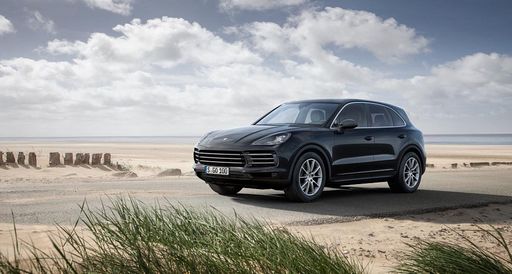
Porsche Cayenne
Costs and Consumption
View detailed analysis
Engine and Performance
View detailed analysis
Dimensions and Body
View detailed analysis
Volvo XC90
The Volvo XC90 is a serene Scandinavian SUV that mixes minimalist luxury with a composed, confidence-inspiring presence — ideal for buyers who want family practicality without sacrificing style. Inside it serves up a calm, well-crafted cabin and user-friendly tech that keeps long journeys pleasant and tantrums to a minimum, making the XC90 a smart, stylish pick for sensible drivers.
details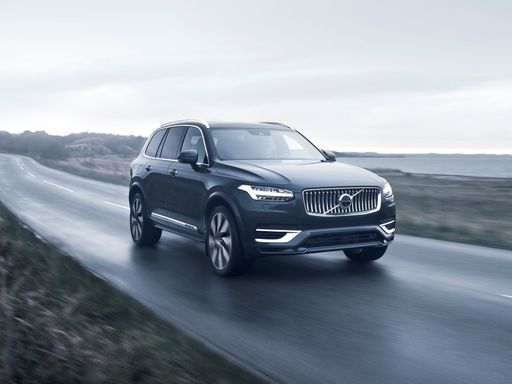
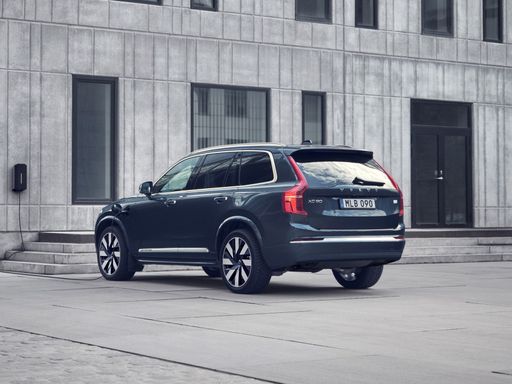

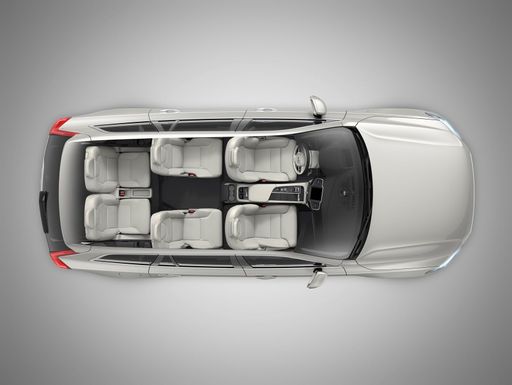
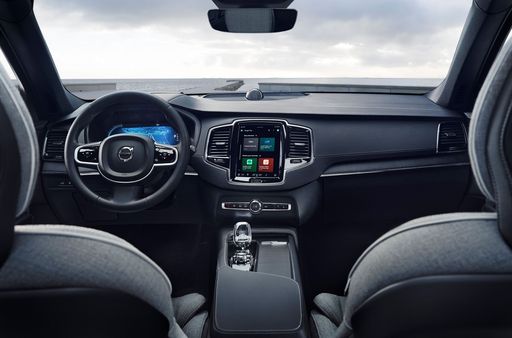
Porsche Cayenne
Few SUVs blend athletic poise and Teutonic precision like the Porsche Cayenne, putting genuine sports‑car feeling into a roomy, everyday package. If you want a practical family hauler that still makes you grin every time you merge, the Cayenne delivers — turning errands into an excuse for a spirited drive.
details
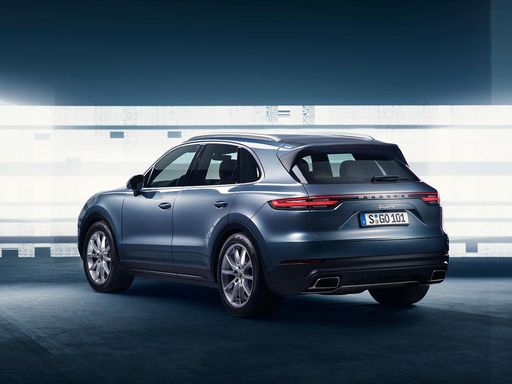
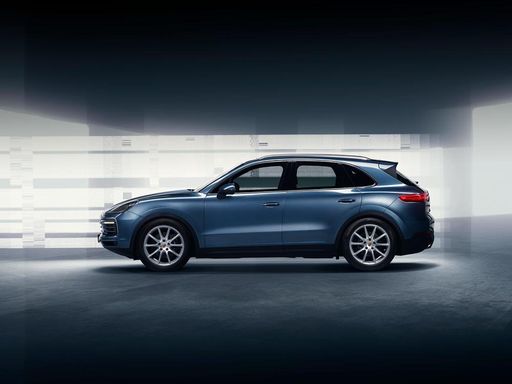
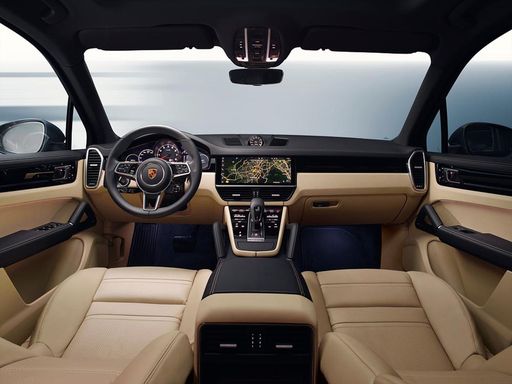
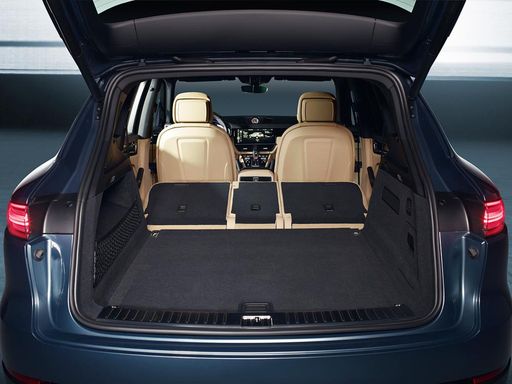
Costs and Consumption |
|
|---|---|
|
Price
69800 - 84600 £
|
Price
87000 - 186400 £
|
|
Consumption L/100km
3.5 - 8.5 L
|
Consumption L/100km
4 - 12.2 L
|
|
Consumption kWh/100km
-
|
Consumption kWh/100km
19.7 - 20.6 kWh
|
|
Electric Range
71 km
|
Electric Range
74 - 642 km
|
|
Battery Capacity
14.70 kWh
|
Battery Capacity
21.80 kWh
|
|
co2
79 - 191 g/km
|
co2
0 - 277 g/km
|
|
Fuel tank capacity
71 L
|
Fuel tank capacity
70 - 90 L
|
Dimensions and Body |
|
|---|---|
|
Body Type
SUV
|
Body Type
SUV
|
|
Seats
7
|
Seats
4 - 5
|
|
Doors
5
|
Doors
5
|
|
Curb weight
2080 - 2297 kg
|
Curb weight
2130 - 2720 kg
|
|
Trunk capacity
262 - 302 L
|
Trunk capacity
434 - 781 L
|
|
Length
4953 mm
|
Length
4930 mm
|
|
Width
1923 mm
|
Width
1980 - 1989 mm
|
|
Height
1771 mm
|
Height
1652 - 1698 mm
|
|
Max trunk capacity
1816 - 1856 L
|
Max trunk capacity
1344 - 1708 L
|
|
Payload
653 - 710 kg
|
Payload
365 - 705 kg
|
Engine and Performance |
|
|---|---|
|
Engine Type
Petrol MHEV, Plugin Hybrid
|
Engine Type
Petrol, Plugin Hybrid, Electric
|
|
Transmission
Automatic
|
Transmission
Automatic
|
|
Transmission Detail
Automatic Gearbox
|
Transmission Detail
Automatic Gearbox, Reduction Gearbox
|
|
Drive Type
All-Wheel Drive
|
Drive Type
All-Wheel Drive
|
|
Power HP
250 - 455 HP
|
Power HP
353 - 1156 HP
|
|
Acceleration 0-100km/h
5.4 - 7.7 s
|
Acceleration 0-100km/h
2.5 - 6 s
|
|
Max Speed
180 km/h
|
Max Speed
248 - 305 km/h
|
|
Torque
360 - 709 Nm
|
Torque
500 - 1500 Nm
|
|
Number of Cylinders
4
|
Number of Cylinders
6 - 8
|
|
Power kW
184 - 335 kW
|
Power kW
260 - 850 kW
|
|
Engine capacity
1969 cm3
|
Engine capacity
2995 - 3996 cm3
|
General |
|
|---|---|
|
Model Year
2024 - 2025
|
Model Year
2025 - 2026
|
|
CO2 Efficiency Class
G, B
|
CO2 Efficiency Class
G, B, C, A
|
|
Brand
Volvo
|
Brand
Porsche
|
What drivetrain options does the Volvo XC90 have?
Available configurations include All-Wheel Drive.
The prices and data displayed are estimates based on German list prices and may vary by country. This information is not legally binding.




